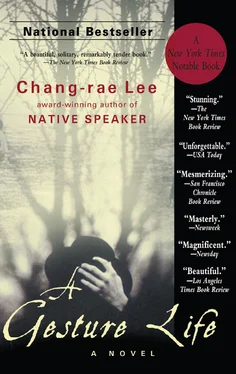“Of course not,” Renny answers. “But why this should somehow be of the most interest, I don’t know. Most people could say anything they want in this regard, and I wouldn’t blink. You know that’s always been my view. But it seems to me the mood has changed around here. I don’t know if it’s this recession and that people are feeling insecure and threatened. Bedley Run was never an over-friendly place, but at least it wasn’t completely unwelcoming. Now I’m not sure. The worst part is that I’m beginning to think I should have realized this long ago, and that I’ve been living for years inside an ugly cloud.”
“You can be so dramatic, Renny!” Liv says, guiding us into the old village proper, the shops and boutiques lined up in a comely bend of a row, one of those fine doors once mine. “Two little incidents in the same week and all of history has changed. So am I included in all this business, too, retroactively?”
“Of course not. I’m talking about something different. Try to tell her, Doc. I know you’ve always been happy here but at least you can partly understand what I’m describing, yes?”
“I believe I do,” I say to them, though unsure of why, and now sensing, too, how physically close we three are, even in the open car. We finally pass Sunny Medical Supply on the other side of the street, its window hazy and unlighted, with nary a glint of activity. “It’s true that at times I have felt somewhat uneasy in certain situations, though probably it was not anyone’s fault but my own. You may not agree with this, Renny, but I’ve always believed that the predominant burden is mine, if it is a question of feeling at home in a place. Why should it be another’s? How can it? So I do what is necessary in being complimentary, as a citizen and colleague and partner. This is almost never too onerous. If people say things, I try not to listen. In the end, I have learned I must make whatever peace and solace of my own.”
“But is this a situation that’s okay with you, Doc?”
Liv throws up her hands at this, the leather-wound steering wheel for a lengthy moment subtly playing on its own. “Sure it is! Come on, Renny, can we please move on now to other topics?”
“This one is interesting enough.”
“Okay then. Fine. Let’s look at the Doctor’s situation. He’s not in too rough a shape, having lived in this town. Bedley Run, after all, is not Selma. He’s recently had some trouble, but that was just a little fire. Otherwise, he lives in a gorgeous house in the most prestigious neighborhood, and he’s enjoying the high golden hour of a well-deserved retirement, for having been a business and civic elder and leader. This from anybody’s view. I could argue that in fact, Doc Hata is Bedley Run. He is what this place is about. Not the doctors and investment bankers and corporate lawyers who have ample cash and want sudden privacy and the airs that go with it. Though they’re my clients and I love them, I have to say they mostly have it wrong and Doc Hata has it right. You come to a place like this, Renny; you don’t make it yours with money or change it by the virtuous coffee color of your skin or do anything but welcomingly submit and you’re happy to do so. Because look. Take one look at this street. The tumbled sidewalk and shabby-chic shops. It’s all simple and beautiful and proportional. It has just the right amount of history, which, for the record, is welcoming and not. It’s the place you want to arrive at, forever and ever.”
“I once thought forever,” Renny says tightly. “That’s what I thought, and it was probably because you said it just like that.”
“Everything is still the same,” she answers him, curling her hand back to cup his cheek. “It will always be the same, if I have anything to do with it.”
We glide to the end of Church Street, going past the yarn shop and the bead and millinery store and the cleaner’s Renny mentioned, whose Vietnamese owners I met only recently when I went around soliciting donations for the local boys’ and girls’ soccer league, which I have long and enthusiastically supported. The couple at the cleaner’s didn’t seem to understand, staring at me stonily and wondering why I would be requesting such a thing, to give me money for others’ children to play. I did not attempt to explain how this could benefit them in the end, as I believed it had benefited me and my business, at least in feeling and reputation. The man and his wife, their faces shiny from working the clothes press and extractor, did not say no or ask me to leave; they did not reply much at all, and we three stood there in the heavy, almost tropical, starch-laden air of the shop, waiting for something to happen.
On Mountview Street the trees are just of that color and scale Liv is talking about, and though it has been but a few days, the pleasing bulk and hang of the limbs makes me homesick for what lies in wait over the first rise of the street, and I feel doubly sorry for my carelessness in overstoking the fire. Liv is perfectly right in describing to Renny what store of happy goods I possess, my house and property being the crown pieces. And though it does occur to me as somewhat unfortunate that this should be so strictly true, I cannot help but feel blessed that I have as much as I do, even if it is in the form of box hedge and brick and paving stone. There is, I think, a most simple majesty in this, that in regarding one’s own house or car or boat one can discover the discretionary pleasures of ownership — not at all conspicuous or competitive — and thus have another way of seeing the shape of one’s life, how it has transformed and, with any luck, multiplied and grown. And as we approach I can already see the red maple I planted in the front yard the first days I lived in the house, a mere sapling that has widened and vaulted up to be much larger than it should be, its surprising increase mirroring, I suppose, everything else I’ve invested in the last thirty years — the values of the property itself, the blue-chip stocks I bought intermittently, the store and building I sold to the Hickeys, whatever I put time or money into ballooning inexorably, magically, to great reward. It seems I have always been fortunate to be in a certain provident time and place, which must be my sole skill, and worth, and luck.
Liv slips the Saab gently into the driveway, and Renny lifts himself from the backseat before I can open the passenger door. He’ll bring the bags and flowers, Liv announces, and the two of us will go directly inside. She wants me to see the work they’ve done, she can’t wait to see what I think.
The keys (hers?) are in the door and she swings it open with ceremony. The lights are all on and there are flowers in the foyer and kitchen and on the hall table. There is music playing, an étude of Chopin from one of the many classical records Sunny left behind, its sober phrases leading me to the family room, the site of the trouble. I see there is a neat stack of split wood in the vacuumed and polished hearth, and that the Berber carpet is new and the same top brand as what was there before the accident, the curtains also having been replaced, as has the singed wall board above the mantel. The whole room has been repainted in the exact shade of pastel moss green Mary Burns once chose for me from a special home decorator’s palette book, the window mullions, too, damp-dusted and sparkling, and the tile floors sheened. Everything appears fresh and vibrant but unmistakably familiar, of certain and actual living.
Which strangely haunts, because as Liv Crawford guides me through the rooms pointing out the distinguishing features of the renovations, I have the peculiar sensation that this inspection and showing is somehow postmortem, that I am already dead and a memory and I am walking the hallways of another man’s estate, leaning into rooms to sniff what lingering notes of his person may remain, the tang of after-shave or slivers of soap, the old wool of his coats and leather shoes, the dust and spice of the cupboards. And I notice, too, the spareness of the rooms aside from the major furnishings, the few photographs showing him among groups of five or six in business attire or settings, and none including anyone who looks like him, distantly or otherwise.
Читать дальше











![William Frith - John Leech, His Life and Work. Vol. 1 [of 2]](/books/747171/william-frith-john-leech-his-life-and-work-vol-thumb.webp)
![William Frith - John Leech, His Life and Work, Vol. 2 [of 2]](/books/748201/william-frith-john-leech-his-life-and-work-vol-thumb.webp)